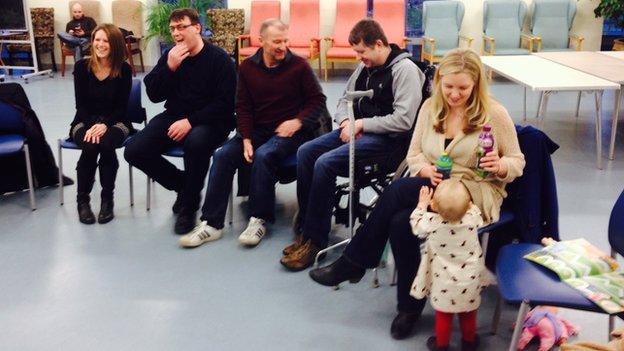The Norfolk choir that gives people their voices back
- Published
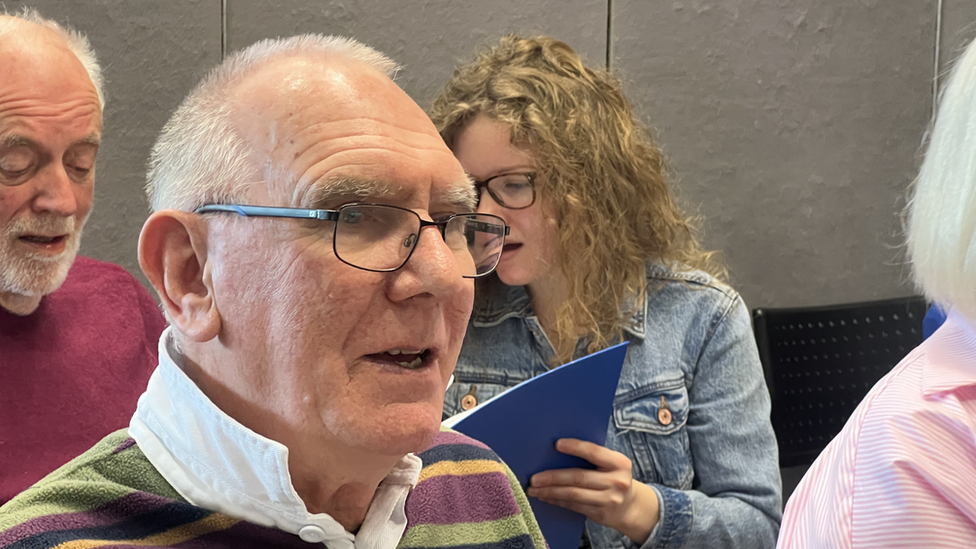
Roger Woodrow goes to the choir with his wife, Jane
A choir has been set up to help people who struggle to talk after suffering strokes or brain injuries.
The Norwich Aphasia Choir meets once a month, under the leadership of a speech therapist who uses music to help people express themselves.
Aphasia is a condition that affects about 350,000 people in the UK.
Research shows, external that some people can sing even if they cannot talk because we use different sides of our brains for speech and music.
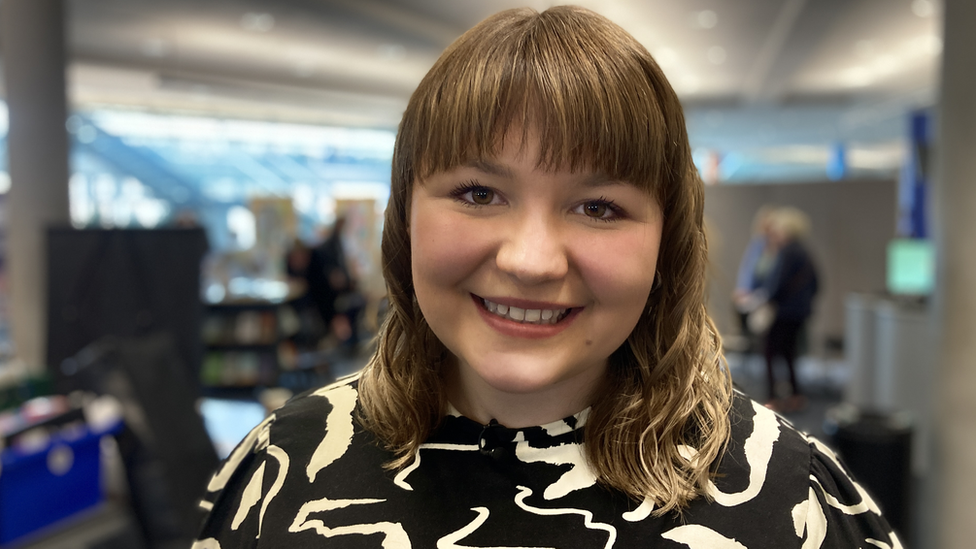
Elissa Manzi hopes there will be more aphasia choirs in the region
Elissa Manzi, 28, who is a speech and language therapy lecturer at the University of East Anglia, set up the choir.
"I worked in stroke rehabilitation, and I often used music to help people express themselves, and I've seen the benefits of using music in that way," she said.
"It's all about which part of the brain has been impacted. Often our language centres used for speaking are in the left hemisphere of our brain, whereas music and music processing triggers the right hemisphere, so often people can sing more easily than they can talk."
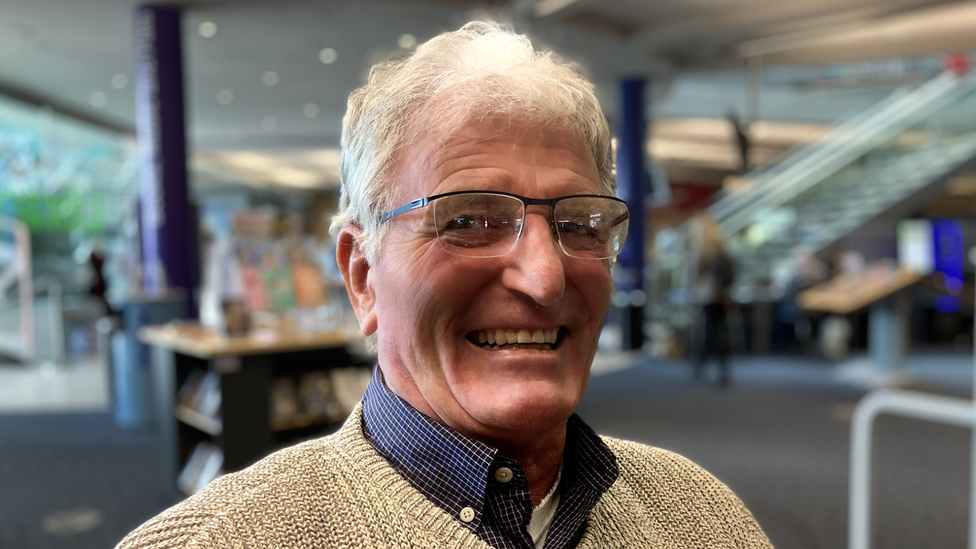
Bob Lailey, who struggles to talk, said "the music flows" when he sings
One of the singers, Bob Lailey from Walcott, Norfolk, struggles to get his words out when he is speaking but can fluently sing songs such as Happy Birthday.
"The music flows and it ticks your brain over," he said.
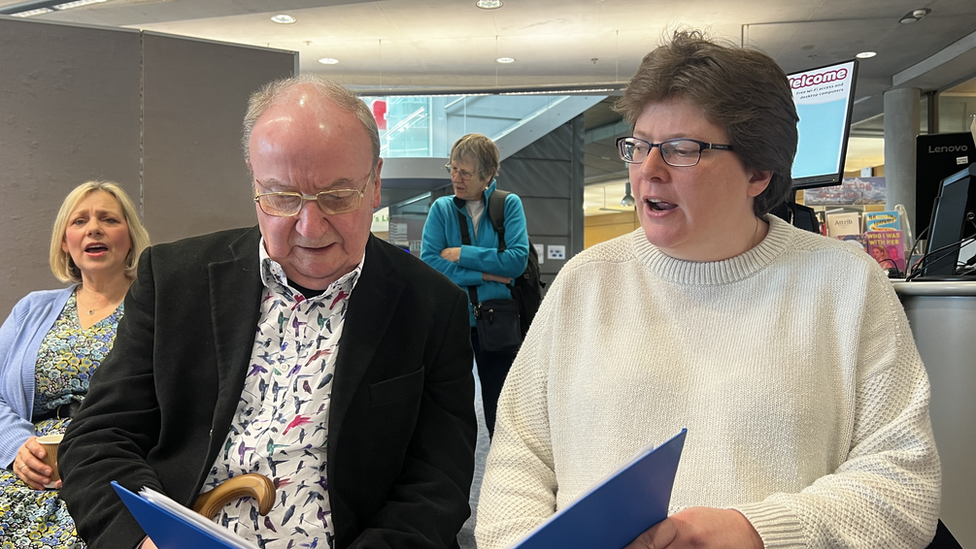
Neil Croft described the aphasia choir as "beautiful"
Neil Croft, who has aphasia, sometimes finds it difficult to make himself understood.
He described the choir as "beautiful", and his wife added: "It's the words that they know because it's familiar, and the tune, so the words just come naturally a bit more than in everyday speech.
"It's seems a bit mad to me because we've never been into singing in our lives, but this has really helped."
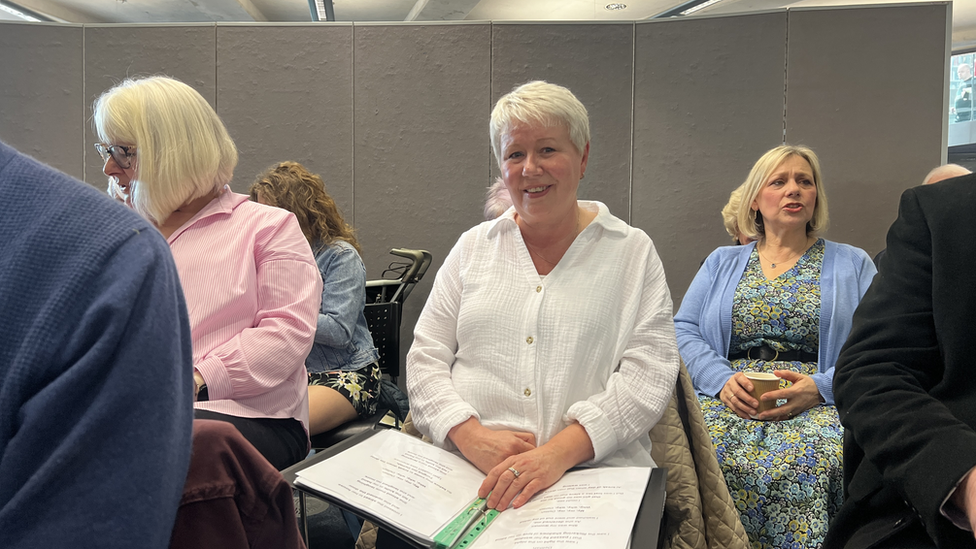
Hilary Myers, who had a stroke, can't say the words but can sing them
Hilary Myers had a haemorrhage and then a stroke 10 years ago.
Her husband described the choir as "a nice place to come, just meeting other people who are in the same situation".
He added: "She can sing the words but she can't actually say the words."
Jane Woodrow comes to the choir with her husband Roger, who has had two strokes.
She said: "Everyone's in the same boat. It doesn't matter if you get the words wrong as everyone understands."
Ms Manzi believes it is the first aphasia choir in the east of England but said she hoped other areas would be inspired to set them up.

Follow East of England news on Facebook, external, Instagram, external and X, external. Got a story? Email eastofenglandnews@bbc.co.uk, external or WhatsApp 0800 169 1830
- Published15 November 2022
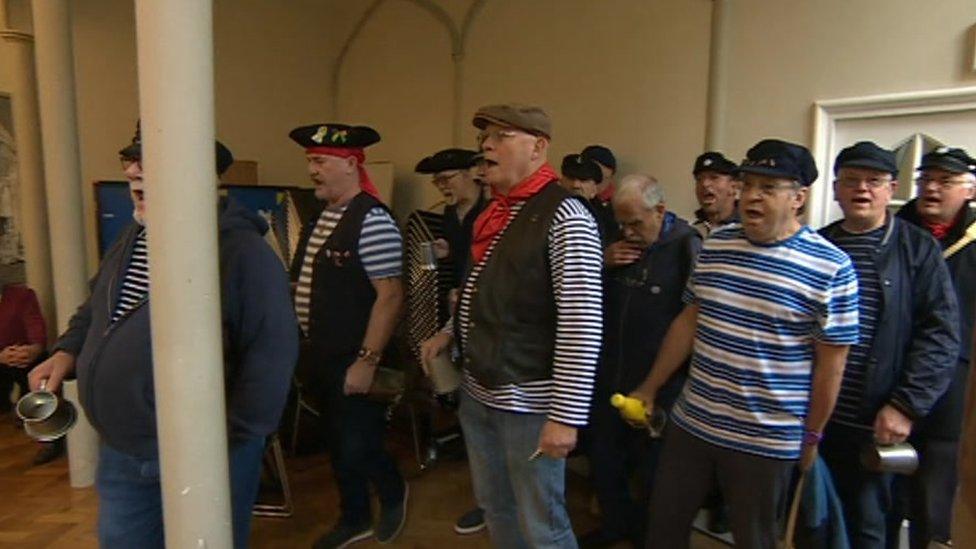
- Published30 April 2022
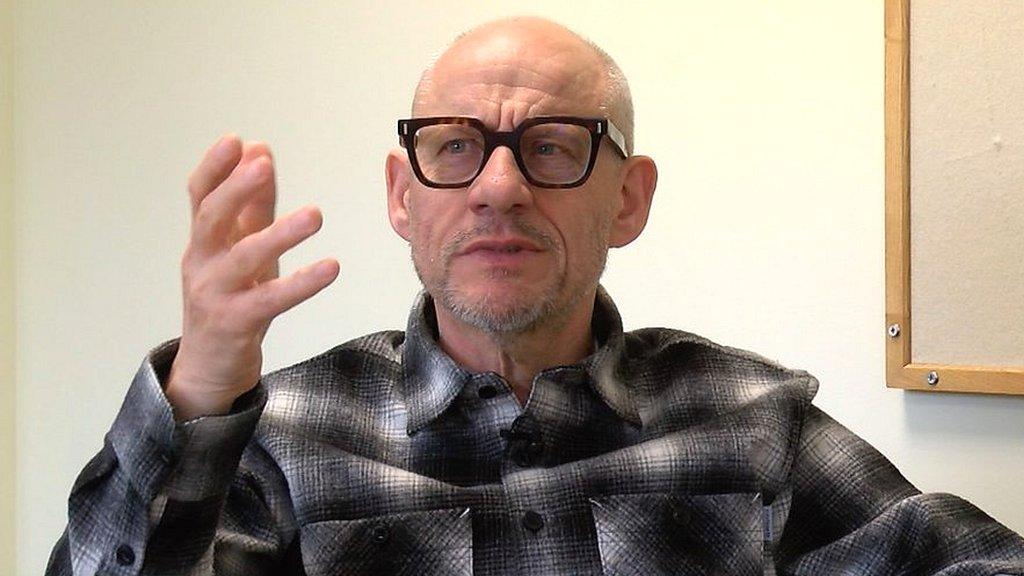
- Published26 February 2015
